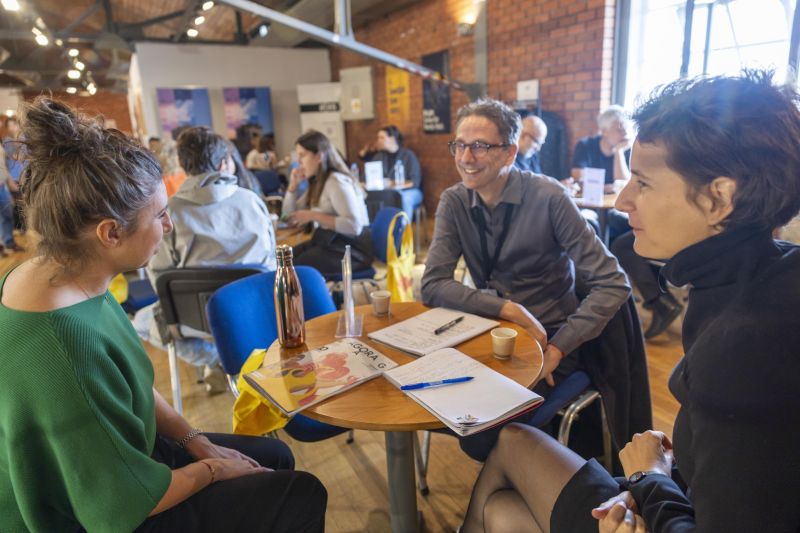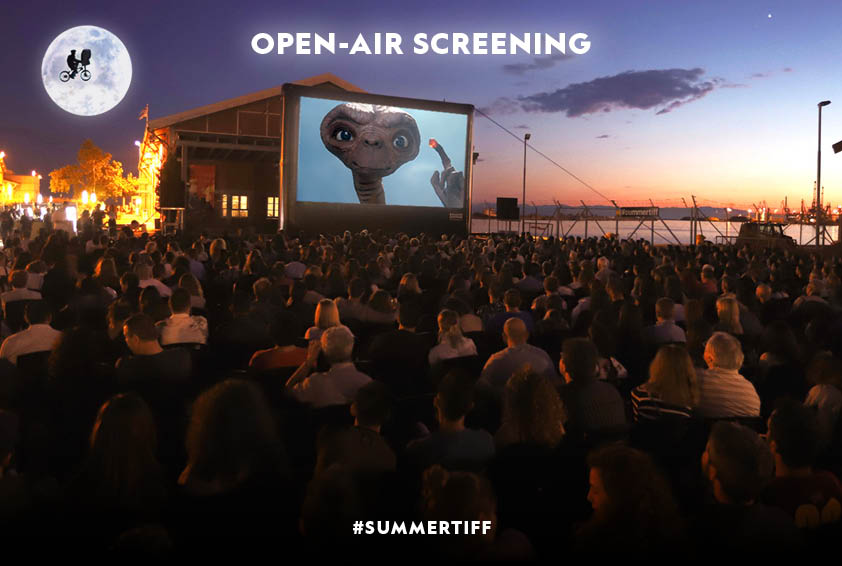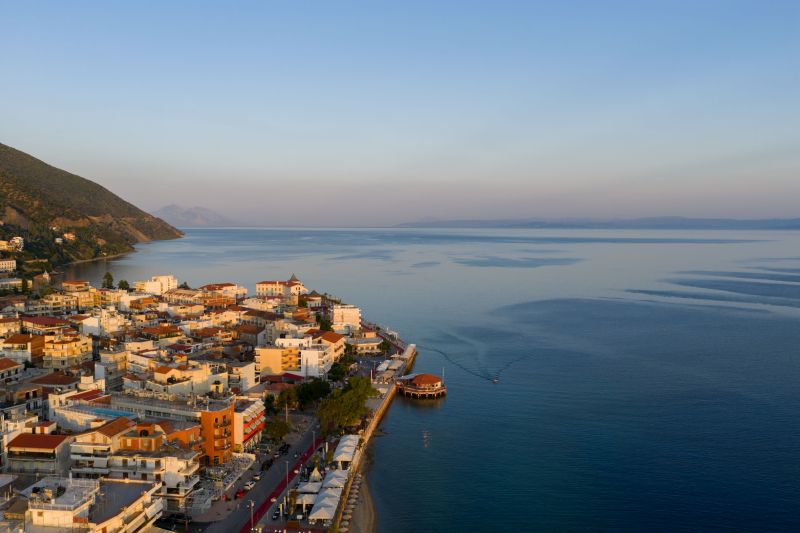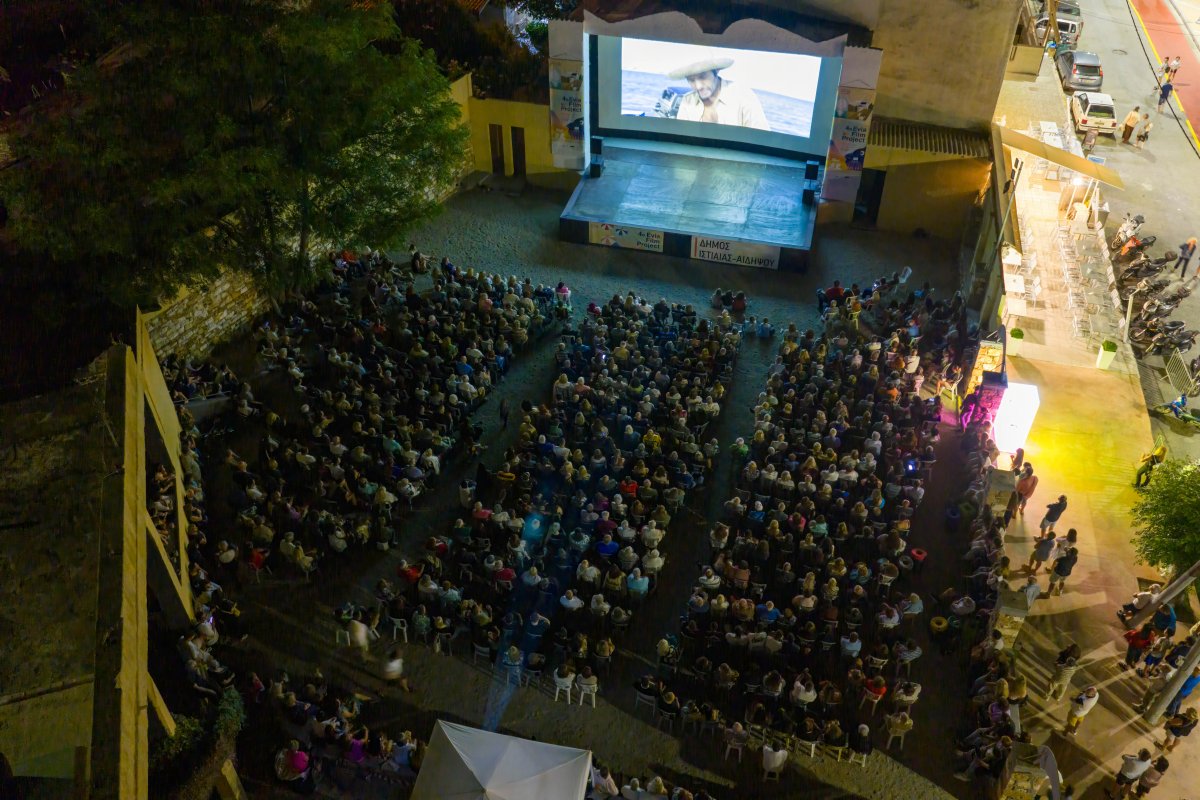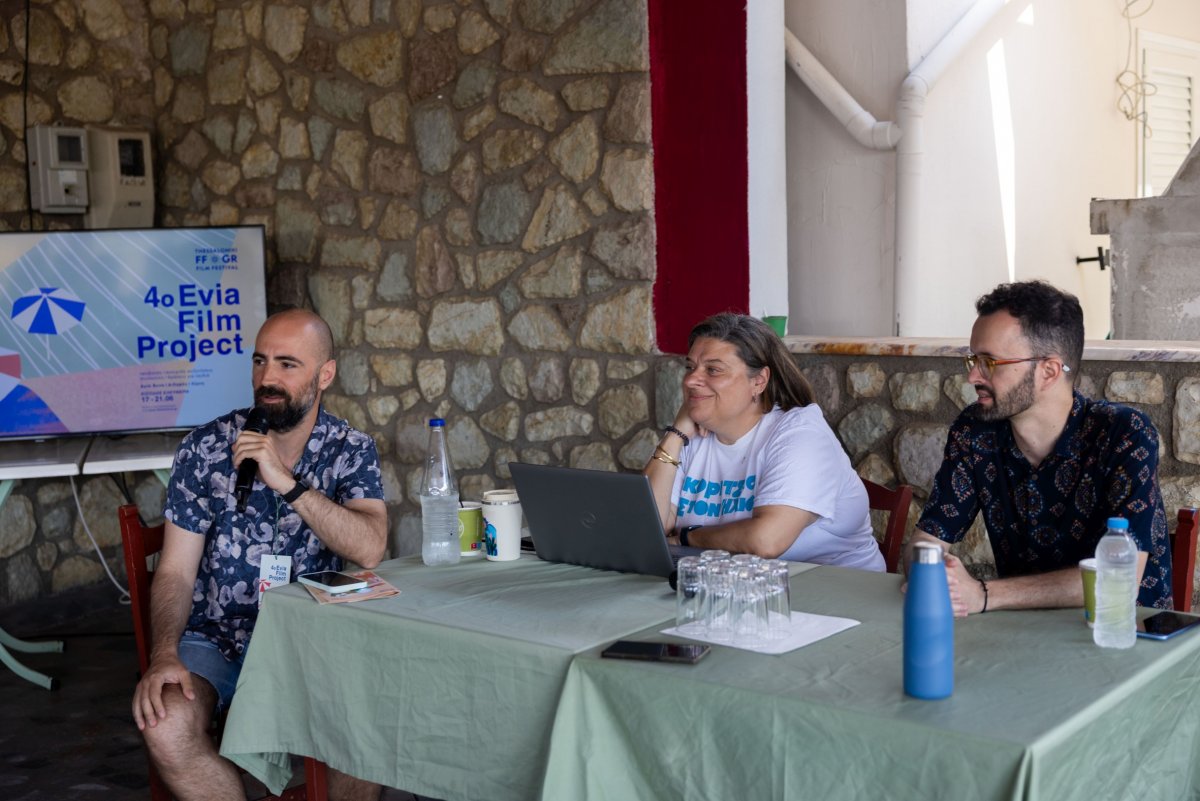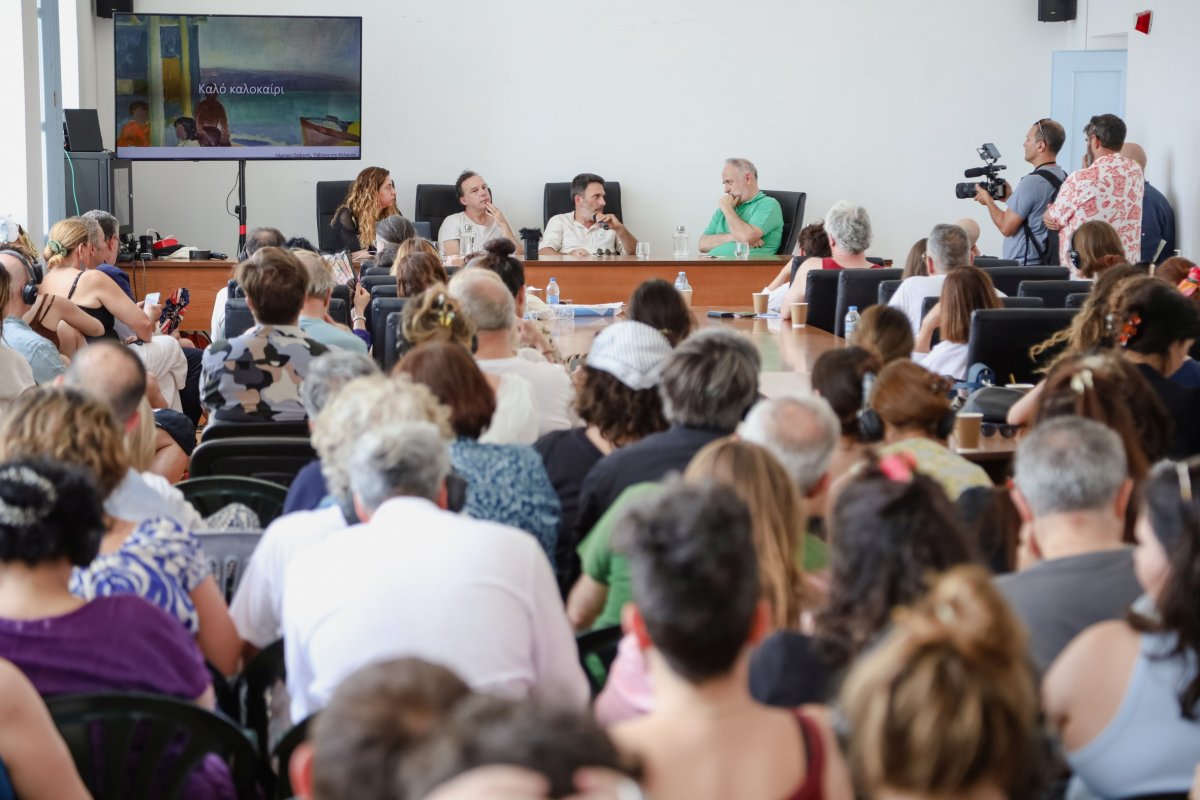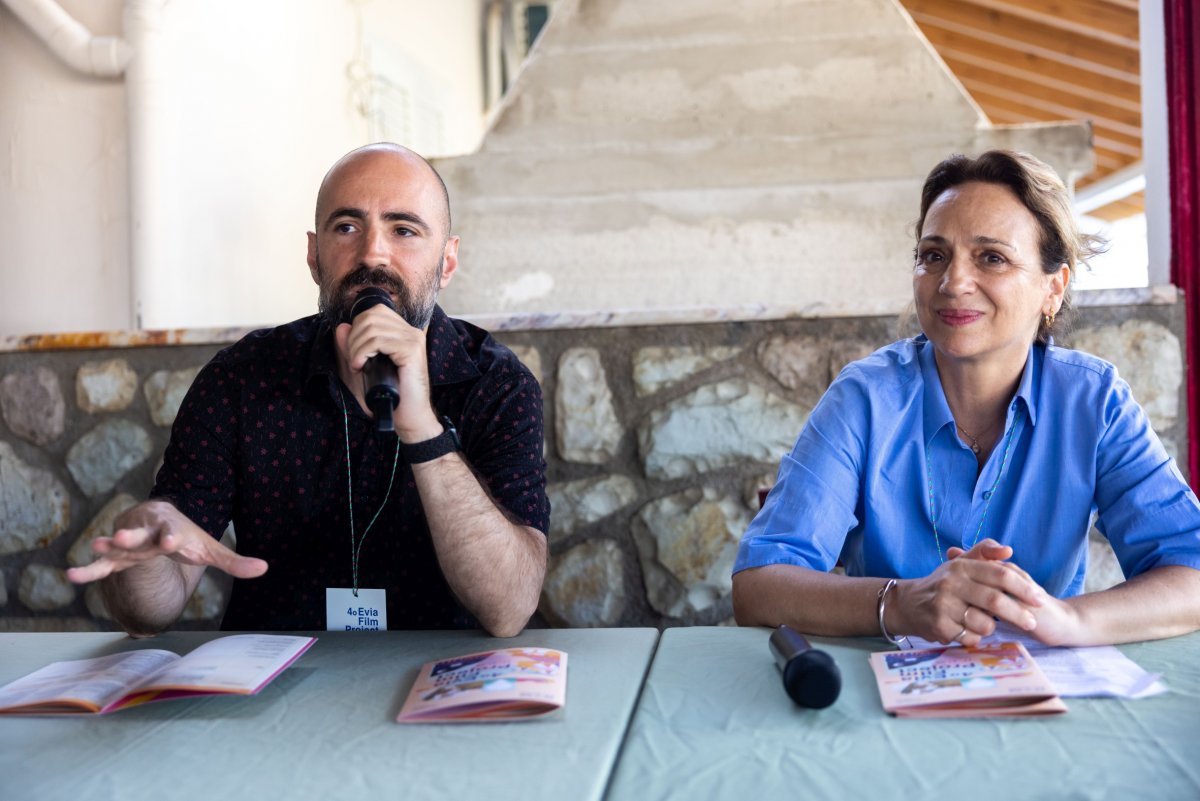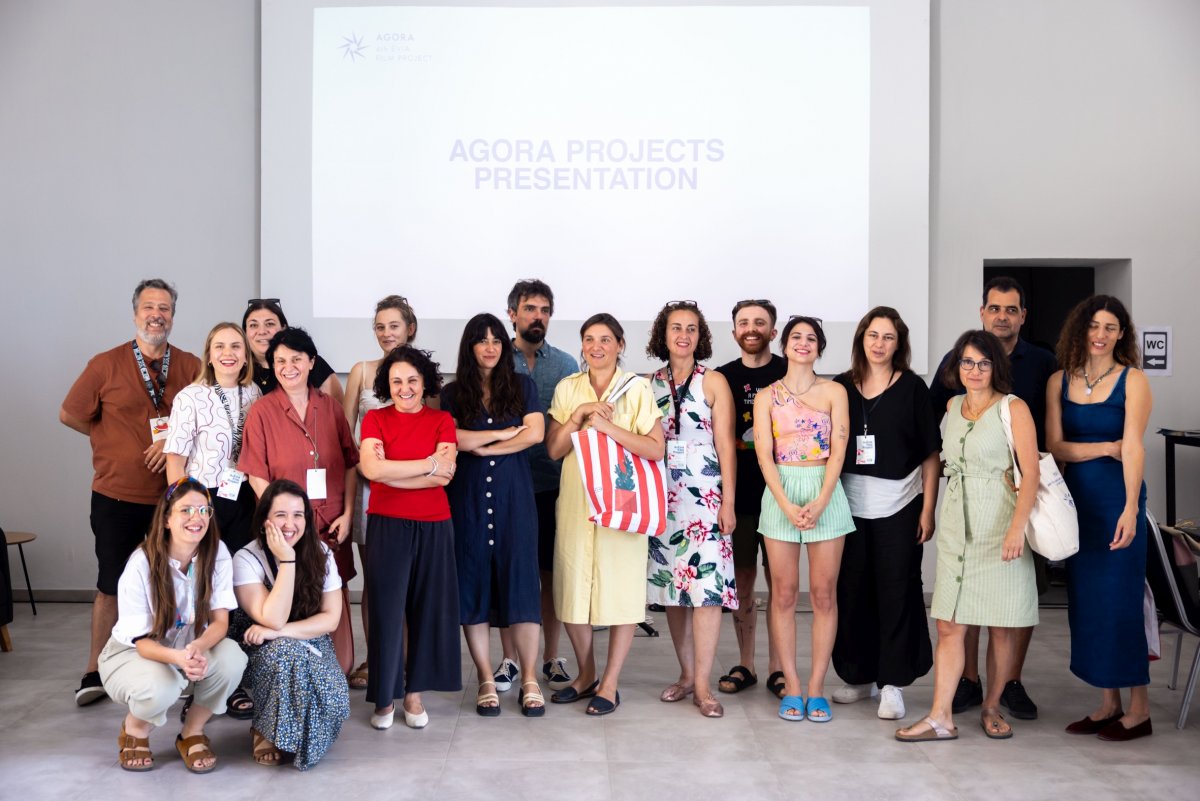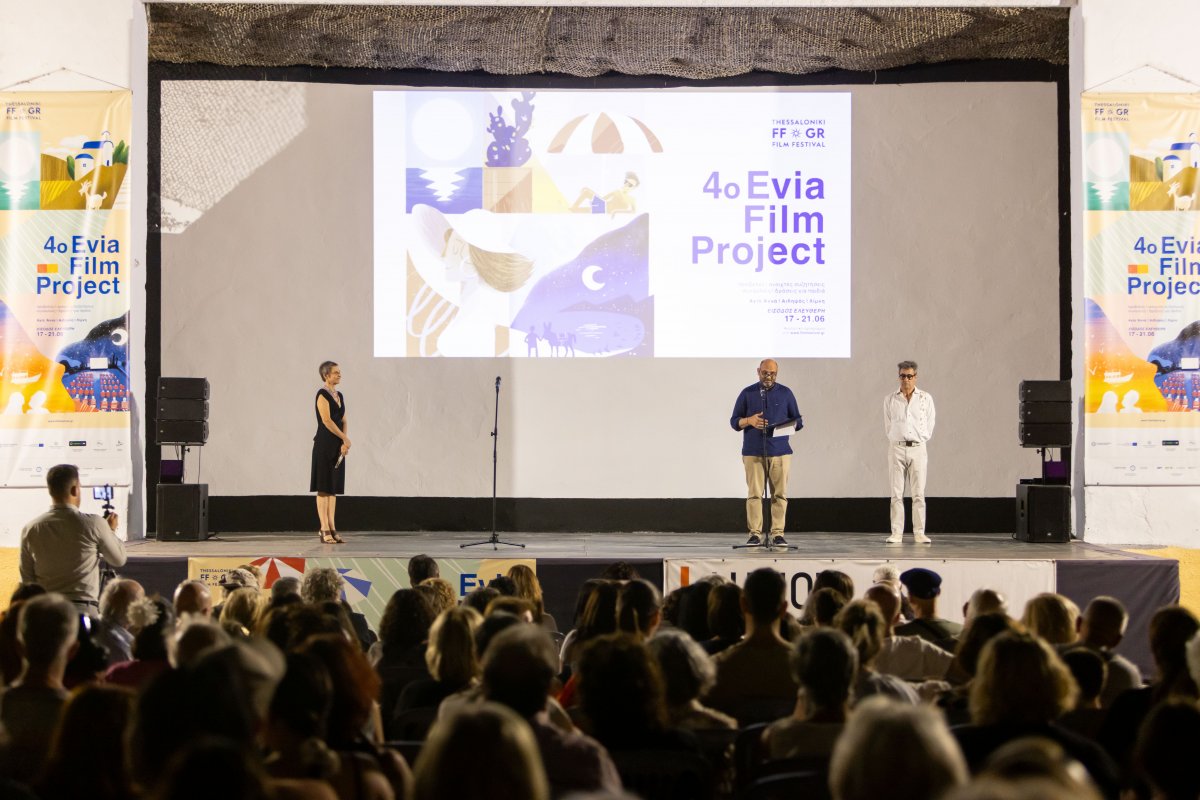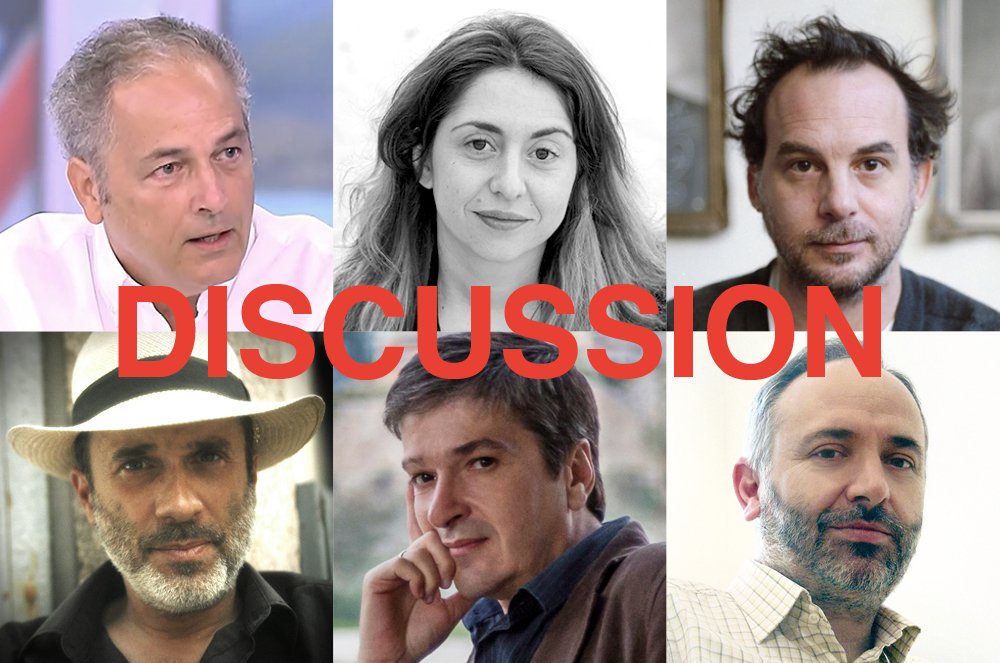PRESS CONFERENCE
OLIGARCHY / KRISIS / BY-STANDING AND STANDING-BY
As part of the 14th Thessaloniki Documentary Festival, a Press Conference was held with the directors Nina Maria Paschalidou and Nikos Katsaounis, (Krisis), Stelios Kouloglou (Oligarchy) and Fofo Terzidou (By-Standing And Standing-By).
By-Standing and Standing-By records the history of the Jewish communities in Thessaloniki and Katerini during WWII. They both suffered from persecution, as described by both survivors and experts from various disciplines. Fofo Terzidou described how the film began, basically out of her meeting producer Periklis Kortsaris, also present at the press conference. The fact that he is descended from Katerini spurred both of them to do research, and they determined that 96% of the Jewish community in Thessaloniki had been exterminated, that is, 4% more than that of Berlin. Mr. Kortsaris noted their original concern about the Holocaust, which he called "an unprecedented and relatively recent crime." He spoke about how he first learned about this tragic and so far invisible story: "Coming from Katerini, a book on the history of my town accidentally fell into my hands. I found a small reference to the issue there. I wasn’t the only one who didn’t know what had really happened, more or less no one does. Official history is rounded out. This was what motivated us to find out what really happened,” Mr. Kortsaris concluded. Ms. Terzidou added: "What happened was unthinkable for both of us, and we couldn’t process it logically, mentally or emotionally. It is in fact a murder of memory. It is not included in the collective narrative, in official history, and it is a collective trauma, which also includes all of us who are not Jewish. "
The discussion then focused on the attempts of the persecuted to rescue their past. At this point the director remarked: "There is a preservation of that memory, although the actual survivors don’t talk about it with younger people. It seems it wasn’t just Greek society that didn’t talk about it, but they themselves didn’t either, perhaps because of the general society they were integrated into. The case of Katerini, however, is a story with a happy ending, as the whole community was saved. As a matter of fact it was the story of a difficult rescue, as people fled to the mountains, even resorting to living in caves and going from village to village. "
The discussion then shifted to the documentary Krisis by Nina Maria Paschalidou and Nikos Katsaounis, which is part of a larger multimedia project on the Greek crisis. Mr. Katsaounis explained what this project includes: «Prism GR2011 is a collaborative recording by famous Greek photojournalists who attempted the transition from photojournalism to documentary film making.
After selecting about 30 subjects, we helped them to direct their first short films, each representing contemporary Greece in some way. We uploaded all the material on a website and then combined all the material in a 62-minute film.” During production the filmmakers met people coming from both rural and urban environments. Ms Paschalidou said "we went to different places, where every photojournalist had his own perspective. However, I think the countryside has already lived its own crisis. Perhaps Athens is the center of everything, but if, for instance, you leave the incidents at Syntagma aside – a place that is vividly symbolic – you can go two streets down and find people drinking coffee.” Mr. Katsaounis stressed the optimistic aspect of this terrible point in time: “Every crisis hides an opportunity for regeneration. What we wanted to do was to cast a light on people who, in spite of difficulties, face the crisis positively. Even the project itself was partly an experiment for us to see whether we can come together and be innovative. In this respect we feel optimistic, also due to the distinctions the film has received abroad”. Ms Paschalidou added the fact that because of the crisis the photojournalists put aside the traditional media they worked with and took on different roles, out of which came something very creative.
Still on the subject of the crisis, Stelios Kouloglou’s film Oligarchy begins in the past, with Pinochet’s coup in Chile, moves on to Bolivia, USA, Europe and ends up in Greece, showing the existence of a global Oligarchy. He referred to “this oligarchy, which is a small group of bankers and politicians who govern the world. In Europe, this role is played by the Frankfurt team which decides everything, raising and demolishing governments, while we often see financial power obviously taking over political power, appointing non-elected bankers”. Among other things, in the film he refers to Henry Ford’s saying: “the bank system must never be understood, because something like that would lead to revolution”. The director observed that the turnaround of public rage against governments to the bankers demonstrates that people are gradually becoming aware of the source of their problems. The director also revealed how he managed to get an interview with a former employee of Goldman Sachs: “You also need luck, because these insiders are usually hesitant. But if you manage to get him in a moment where he wants to talk, or if it’s in his best interest, things get much easier”. He also spoke about how he was treated by the German media, which he approached. “I asked for an interview from Focus, which is a bit more dangerous than Bild, since it has a bigger readership, shapes opinions and is aimed at wealthier, conservative citizens. Recently I was asked for an interview by German television. In spite of the fact that I did so on the condition that the part where I said that Greeks are not lazy would not be cut. Finally, the interview was aired without this point, he noted.
Speaking about the consequences of such a point of view, Mr. Kouloglou stressed: “A very negative image of us has been created, as everyone sees us as the Jews of today. So we can’t seriously negotiate on any level, while our tourism is facing even more problems. It’s about time we started reversing this climate. In fact I want to begin a campaign called Yellow Star, where we would all wear a yellow star, hoping that this way some people could be made more aware. There has not been such massive slander of an entire people since the Second World War. This is done on purpose, and for many reasons”.
Asked whether this negative climate can be reversed by us, Nikos Katsaounis said: “I don’t believe anything can change if we don’t change. Change happens from yourself and those close to you, nothing changes from the top down. Also, we have the opportunity to re-examine our priorities. I believe Greece has gone through a great deal through the ages, perhaps some of our grandparents are laughing at what they see relative to the poverty they went through fifty years ago”. Nina Maria Paschalidou added: “we were the first to create these stereotypes, we described ourselves as lazy and we have to be the first to change this”.
The Greek films of the 14th TDF are financed, are funded, amongst other activities of this year’s edition, by the European Union - European Regional Development Fund under the Central Macedonia ROP 2007-2013.




